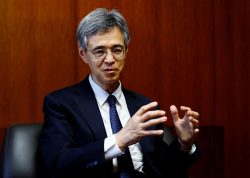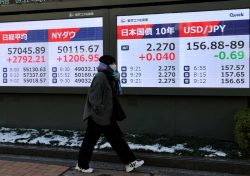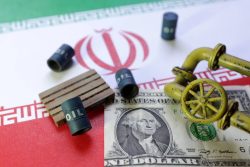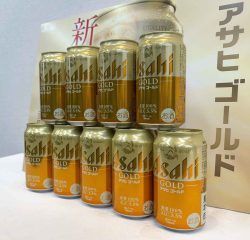
The Japanese national flag waves at the Bank of Japan building in Tokyo, Japan March 18, 2024.
11:05 JST, June 21, 2024
TOKYO, June 21 (Reuters) – Japan’s core inflation accelerated in May due to energy levies but an index that strips away the effect of fuel slowed for the ninth straight month, data showed on Friday, complicating the central bank’s decision on how soon to raise interest rates.
The slowdown in so-called “core core” inflation, which is closely watched by the Bank of Japan as a key gauge of demand-driven price moves, casts doubt on the bank’s view that rising wages will underpin consumption and keep inflation on track to durably hit its 2% target.
The core consumer price index (CPI), which excludes volatile fresh food, rose 2.5% in May from a year earlier, government data showed, accelerating from the previous month’s 2.2% gain due largely to a hike in the renewable energy levy. It was roughly in line with a median market forecast for a 2.6% gain.
But inflation as measured by an index stripping away both fresh food and fuel slowed to 2.1% in May from 2.4% in April, marking the lowest year-on-year increase since September 2022.
Private-sector service inflation slowed to 2.2% in May from 2.4% in the previous month, suggesting companies remained cautious about passing on labor costs.
“The Bank of Japan has been arguing that the strong pay hikes agreed upon in this year’s spring wage negotiations will eventually provide a boost to services inflation, but so far there’s little evidence of that happening,” said Marcel Thieliant, head of Asia-Pacific at Capital Economics.
A renewed rise in crude oil prices and the boost to import costs from a weak yen muddle the outlook for inflation.
Analysts expect core CPI to accelerate near 3% later this month due to rising raw material costs. But such pressure could hurt consumption and discourage firms from hiking prices, hampering the BOJ’s efforts to keep underlying, demand-driven inflation durably around its 2% target.
“Real wage growth remains weak in Japan and there’s no data confirming that demand-driven inflation is accelerating,” said Takeshi Minami, chief economist at Norinchukin Research.
“The BOJ probably won’t raise rates again at least until October-December this year,” he said.
The BOJ exited negative rates and bond yield control in March in a landmark shift away from a decade-long, radical stimulus program.
With inflation exceeding its 2% target for two years, it has also dropped hints that it will raise short-term rates to levels that neither cool nor overheat the economy – seen by analysts as somewhere between 1-2%.
Many economists expect the BOJ to raise interest rates to 0.25% this year, though they are divided on whether it will come in July or later in the year.
BOJ Governor Kazuo Ueda has said the central bank will raise rates if it becomes more convinced that inflation will durably hit 2% backed by robust domestic demand and higher wages.
Recent weak signs in consumption remain a concern. Japan’s economy contracted in the first quarter due in part to a 0.7% drop in consumption as rising living costs discourage households from boosting spending.
Top Articles in News Services
-

Survey Shows False Election Info Perceived as True
-

Hong Kong Ex-Publisher Jimmy Lai’s Sentence Raises International Outcry as China Defends It
-

Japan’s Nikkei Stock Average Touches 58,000 as Yen, Jgbs Rally on Election Fallout (UPDATE 1)
-

Japan’s Nikkei Stock Average Falls as US-Iran Tensions Unsettle Investors (UPDATE 1)
-

Japan’s Nikkei Stock Average Rises on Tech Rally and Takaichi’s Spending Hopes (UPDATE 1)
JN ACCESS RANKING
-

Producer Behind Pop Group XG Arrested for Cocaine Possession
-

Japan PM Takaichi’s Cabinet Resigns en Masse
-

Man Infected with Measles Reportedly Dined at Restaurant in Tokyo Station
-

Israeli Ambassador to Japan Speaks about Japan’s Role in the Reconstruction of Gaza
-

Videos Plagiarized, Reposted with False Subtitles Claiming ‘Ryukyu Belongs to China’; Anti-China False Information Also Posted in Japan






















